Across flooring, wall coverings and upholstery fabrics, these brands put the environment first, from practice to product
With a growing awareness of the impact our choices have on the planet, homeowners are increasingly looking to incorporate eco-friendly alternatives in the very fabric of our properties: think flooring, wall coverings and other everyday surfaces that see a lot of heavy use.
Combining renewable materials, age-old craftsmanship, and the latest innovative tech, these next gen products mean we no longer have to rely on carpets that contain harmful chemicals, or flooring that’s destined for landfill at the end of its life.
Cork is an ever-popular choice for discerning homemakers with a conscience. Cork trees are harvested for their bark, rather than cut down. Typically, the tree is carefully hand-stripped – a skill passed down through generations – while the regeneration process itself helps with CO2 absorption, offsetting millions of tonnes of carbon each year. Suffice to say, this is an entirely biodegradable and recyclable material, too.
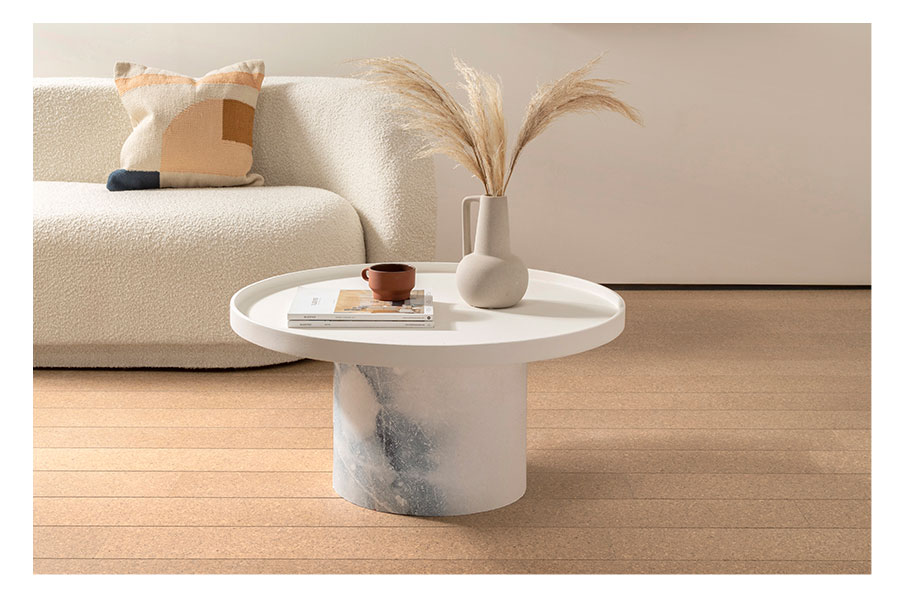
Recork UNA in Birch Beige
As a flooring choice, cork offers organic warmth and texture, it proves highly strong and durable, and it’s also pleasingly low maintenance. “As trends come and go, flooring is much harder to replace compared to wall colours or furniture,” says James Scully, founder of forward-thinking flooring brand, Recork. “It’s therefore essential to choose a material that will stand the test of time. Although previously more popular in commercial spaces, cork is very much in the spotlight for our homes, thanks to its incredible sustainability credentials as an inherently natural, renewable material that plays a vital role in the fight against global warming.” (recork.co.uk)
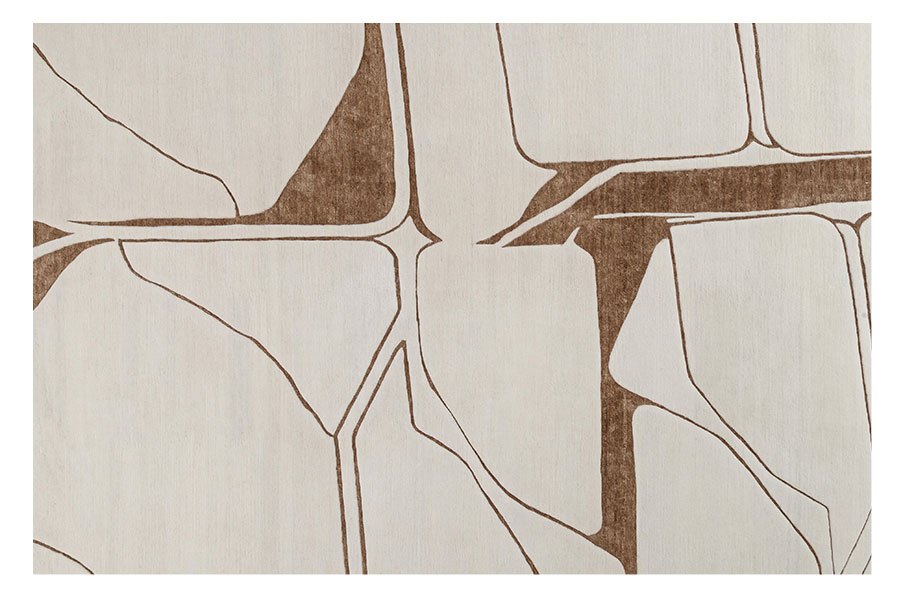 Art+Loom Ondula Rug
Art+Loom Ondula Rug
Art+Loom is a Miami-based luxury rug brand that introduced their wares to the European market to much excitement at this year’s Milan Design Week. The brainchild of Samantha Gallacher, they deal in design-led carpets, handwoven in Nepal using ancient techniques and natural materials including allo, which is derived from the Himalayan giant nettle. Renewable and locally sourced, the plant is harvested for its durable fibres and can lay claim to being one of the most sustainable materials on Earth, thanks to its abundant and fast-growing nature. Typically grown without the use of chemical pesticides or fertilsers, it boasts a low environmental impact. It also has the ability to sequester carbon dioxide from the atmosphere, so in choosing a rug made with allo, you can indirectly support vital carbon capture efforts. (artandloom.com)
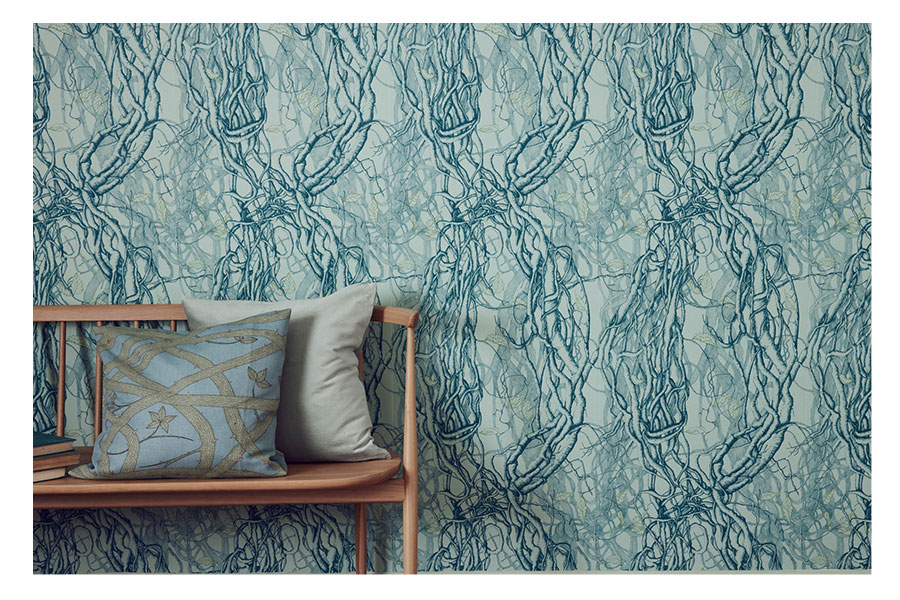 Abigail Edwards Misselthwaite wallpaper in Forest
Abigail Edwards Misselthwaite wallpaper in Forest
What we put on our walls can have a huge impact on the environment. Many household paints contain high levels of VOCs (that’s volatile organic compounds) as well as hazardous ingredients such as heavy metals – think lead and mercury, or solvents like benzene or xylene, that are harmful to ecosystems when they contaminate our soil or water sources. Seemingly innocent wallpapers can also be detrimental: some are made using toxic materials such as vinyl, PVC, and other synthetic chemicals that release harmful substances into the air over time. “It is so easy to decorate sustainably these days but check what you are buying first,” advises Abigail Edwards, founder of the eponymous wallpaper brand. “Make sure the papers are printed with non-toxic based inks. Many wallpapers will claim to be made from sustainably sourced materials but check that there aren’t any added nasties in there. Unlike standard ‘paste the wall’ wallpapers, our Eco wallpapers are made with 79 per cent renewable raw materials, the PET fibres have been replaced with plant-based fibres created from fermented starch, and the remaining 21 per cent is a water based latex binder. Thirty per cent less greenhouse gases are emitted during the manufacturing process and the papers are compostable.” (abigailedwards.com)
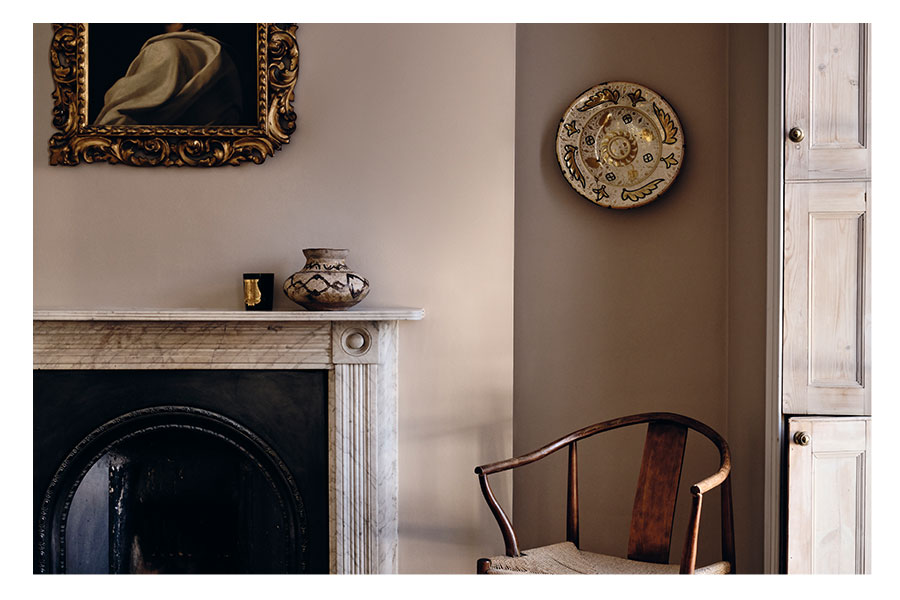 Francesca’s Paints Postcard from Barra in Traigh
Francesca’s Paints Postcard from Barra in Traigh
Francesca’s Paints is a brand that can lay claim to being one of the first eco paint companies in the UK. Founded in 1996 by colourist Francesca Wezel, the brand puts sustainability and environmentalism at the heart of all they do, with entirely plastic free, breathable, and solvent-free paints on offer. And if you can’t find the exact colour you’re looking for, Francesca creates entirely bespoke shades, mixed to suit the client’s needs, so there’s really no excuse to not go eco. (francescaspaint.com)
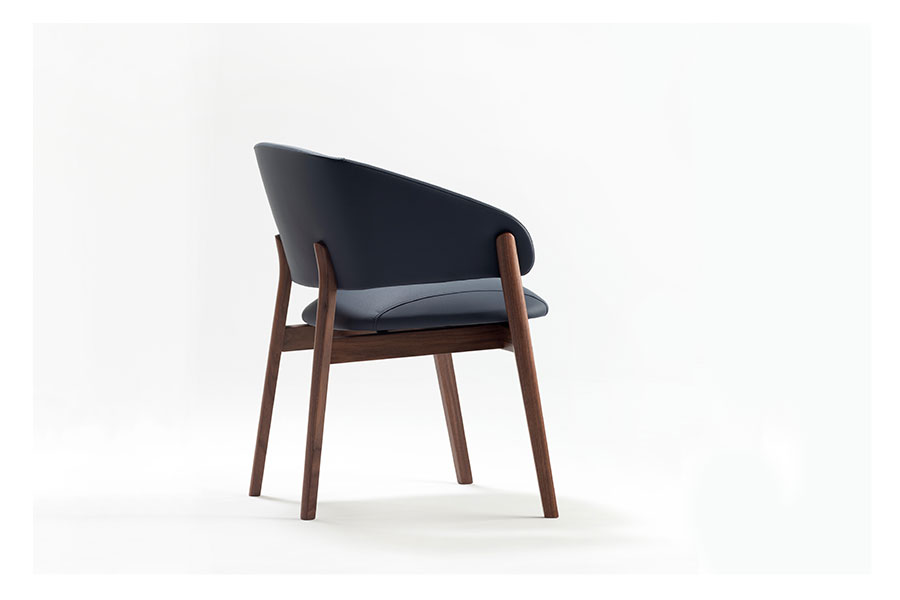
Morgan Lugano dining chair
With the leather industry closely linked to deforestation – tress are invariably cut down to allow for cattle grazing and the cultivation of animal feed – Ultrafabrics is a brand that offers a luxe vegan alternative. Marrying Japanese craftsmanship with state-of-the-art technology and sustainability-focused innovation, these are high-performance textiles for high-end furniture pieces – Morgan Furniture’s stylish Lugano collection being a case in point. (ultrafabricsinc.com; morganfurniture.co.uk)